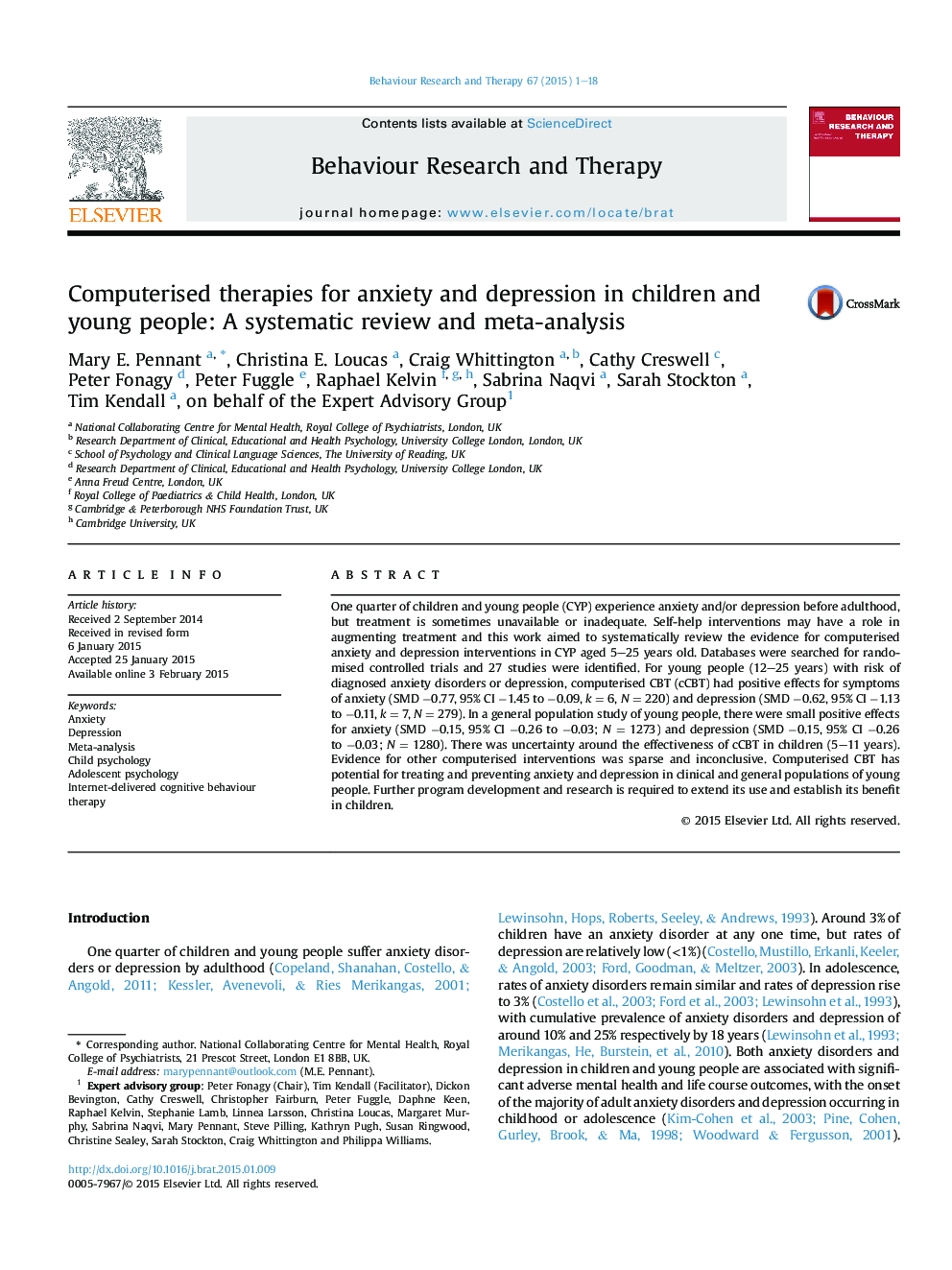| Article ID | Journal | Published Year | Pages | File Type |
|---|---|---|---|---|
| 901822 | Behaviour Research and Therapy | 2015 | 18 Pages |
•This review adds a number of recent studies, not included in previous systematic reviews.•It confirms the likely benefit of computerised CBT for anxiety and depression in young people.•It identifies other computerised treatments for anxiety and depression in children and young people.•It provides a robust assessment of the quality of the evidence.
One quarter of children and young people (CYP) experience anxiety and/or depression before adulthood, but treatment is sometimes unavailable or inadequate. Self-help interventions may have a role in augmenting treatment and this work aimed to systematically review the evidence for computerised anxiety and depression interventions in CYP aged 5–25 years old. Databases were searched for randomised controlled trials and 27 studies were identified. For young people (12–25 years) with risk of diagnosed anxiety disorders or depression, computerised CBT (cCBT) had positive effects for symptoms of anxiety (SMD −0.77, 95% CI −1.45 to −0.09, k = 6, N = 220) and depression (SMD −0.62, 95% CI −1.13 to −0.11, k = 7, N = 279). In a general population study of young people, there were small positive effects for anxiety (SMD −0.15, 95% CI −0.26 to −0.03; N = 1273) and depression (SMD −0.15, 95% CI −0.26 to −0.03; N = 1280). There was uncertainty around the effectiveness of cCBT in children (5–11 years). Evidence for other computerised interventions was sparse and inconclusive. Computerised CBT has potential for treating and preventing anxiety and depression in clinical and general populations of young people. Further program development and research is required to extend its use and establish its benefit in children.
